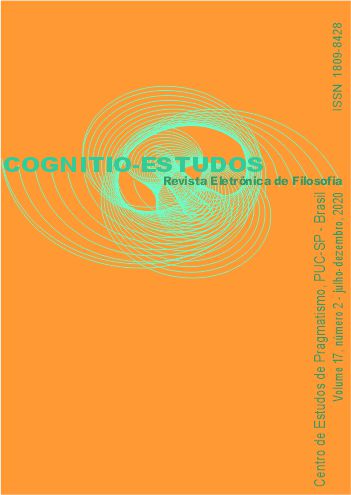The concept of warranted assertibility in Dewey as the heart of his instrumental pragmatism
DOI:
https://doi.org/10.23925/1809-8428.2020v17i2p221-233Palavras-chave:
Classical Pragmatism. Warranted Assertibility. Discourse. EthicsResumo
Pragmatism started in the second half of the 19th century in North America and, in many respects, is still with us today. This school of thought has been hugely influential in many areas such as in the philosophy of language, science, logic and metaphysics; in the philosophy of mind, ethics, aesthetics and in the philosophy of religion. This article introduces Dewey’s specific kind of pragmatism in the context of classical American Pragmatism, represented by Peirce and James. We then examine the formation of the core of Dewey’s instrumental pragmatism - his concept of warranted assertibility. The analysis is based on five pragmatic themes - pluralism, anti-foundationalism, fallibilism, the agents of perspective and the communities of inquirers -; one scientific paradigm - Darwinian evolutionism - and one philosophical - Kantian German Idealism. We propose the importance of Dewey’s enduring legacy lies in the fact that his concept of warranted assertibility involves discussions of the relations between philosophy of language and philosophy of conduct, between rationality, discursive intentionality, responsibility and ethics.

